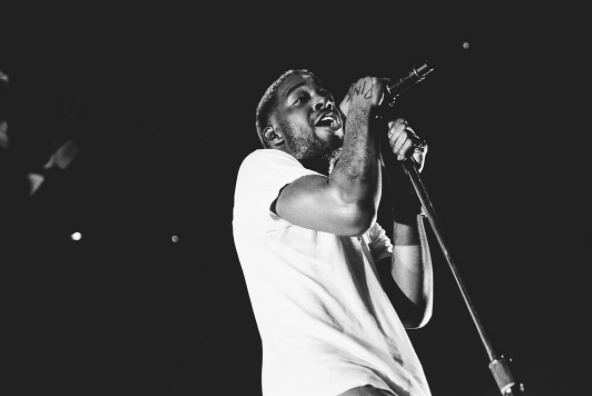Destigmatizing Depression: A Rapper’s Role
“I love myself.” It may sound narcissistic, but as the catchphrase of Kendrick Lamar’s song “i,” it represents much more than ironic, teenage self-worship. It actually reflects the inability for people to acknowledge their self-worth. Taken off of his 2015 album To Pimp a Butterfly, the anthem acts as the script for a new Kaiser Permanente ad, which urges kids to open up about their depression in order to reduce the stigma of emotional disorders. It features a young African-American boy wandering through his town while reciting Lamar’s lyrics.
The commercial highlights the complicated relationship that rap music and mental health share.
During the 90s, Biggie Smalls and Tupac famously addressed their experiences with depression in their lyrics, but the conversation had gone noticeably silent since the 2000’s. That is, until recently. Though rap has not typically focused on subjects like major depression, Lamar and other artists are beginning to promote self-esteem through their art. In 2015, Earl Sweatshirt, Heems, and Future helped bridged that gap. Now, in 2016, Frank Ocean and Danny Brown have joined the conversation with their new albums, and Kid Cudi publically announced that he checked into rehab for depression in early October, starting the hashtag #yougoodman to raise awareness of depression under wraps. Each of these big-name stars has taken steps to verbalize his individual ongoing battle with depression.
Rap has always dealt with difficult and progressive issues, but since rap’s birth in the Bronx more than four decades ago, its political and social messages have changed dramatically. Rap is a limb of hip-hop, which developed out of a young, machismo culture in the 70’s that had an aggressive new desire to give the streets an empowering voice. At the time of the development of rap, gangs developed due to widespread urban decay and distrust in politics, so rap acted as a tool for social criticism.
This means that rap also emerged from a community that tends to cast aside or ignore conversation surrounding mental illness and therapy. The core of rap tends to relate to strength and tenacity. Black masculinity has historically been at odds with emotional disorders, mostly because confessing to them can be seen as an admission of fragility.
In an interview with U.S. News, author and therapist Terrie Williams, who, herself, has dealt with depression, addressed the stigma frankly, saying, “Depression is a sign of weakness in the black community.” According to Williams, African-Americans are less likely to have access to certain mental health services aids that can make dealing with depression easier. A study by the California Reducing Disparities Project also shows that while 15% of the white population seeks mental health services, only 6% of the black population takes advantage of these resources.
In reality, mental heath issues often remain untreated in minority communities at a much higher rate than with wealthier or more privileged populations. Thus, a cycle of rejection and misunderstanding for conditions as serious as depression form.
That’s why it’s so important that modern rappers are speaking up for a purpose that’s overdue some attention. Kid Cudi’s case in particular has encouraged many people to speak openly about mental illness, who took to Twitter and Instagram to offer Cudi well wishes and admiration for his honesty. The hashtag #yougoodman for people—specifically black men—exposes the relationship between race, masculinity, and depression on the Internet.
For a genre so intricately connected to people of color, hip-hop is an immensely powerful resource for those struggling to find happiness. The boy reciting Lamar’s lyrics in the Kaiser Permanente advertisement is a reminder to consider the healing, educational and inspirational powers of hip-hop culture—it did start as an outlet for tackling adversity, after all. Music is an influential medium that has the power to help people through changing and representing current struggles, and, as proven by the Compton lyricist, it’s not too late for rappers to alter the perception of mental illness.
So, when things are getting a little too stressful, there’s no shame in plugging in your headphones and taking a dose of some lyrical medicine.


